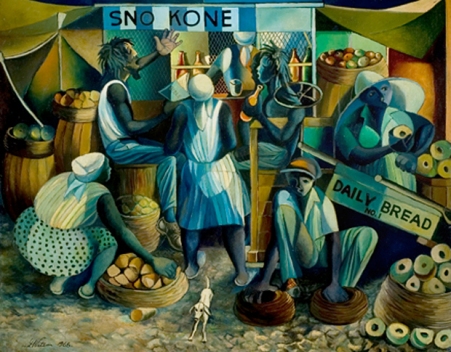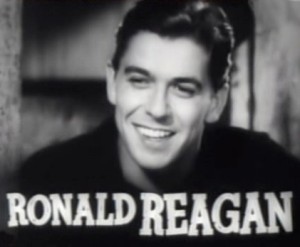Yes, it was half-a-century ago that George, John, Paul and Ringo slinked onto the stage of the Ed Sullivan Show to launch the British Invasion, a significant cultural event, not so much because of the lasting impact of bands like The Dave Clark Five or the Mersey Beats or Herman’s Hermits, but because bands like the Stones and the Animals reintroduced American listeners to R & B and the blues by covering the likes of Slim Harpo, Jimmy Reed, and John Lee Hooker.
Also, 2014 marks the 50th anniversary of the Rolling Stones first LP. The half-century commemoration of these cultural milestones has spurred John Covach of the Huffington Post to wonder if, “Five decades later and after proving themselves one of the most popular and durable rock bands of all time, are the Stones once again taking a backseat to the Liverpool mop-tops?” [gag]
Comparing the Beatles and Stones is a time-honored tradition among my generation, and, of course, existentially, people fall into either camp according to their predilections. Some might prefer the catchy tunes and wider sonic range of the Beatles to the Stones’ grittier R & B-based sound and vice versa.
 And, of course, who’s better depends on the criteria by which we judge. Well, I have spent this rainy Saturday afternoon following the great English critic Matthew Arnold’s dictum that the critic must embrace “disinterestedness [. . .] by keeping aloof from what is called ‘the practical view of life.'”
And, of course, who’s better depends on the criteria by which we judge. Well, I have spent this rainy Saturday afternoon following the great English critic Matthew Arnold’s dictum that the critic must embrace “disinterestedness [. . .] by keeping aloof from what is called ‘the practical view of life.'”
So I compiled a list of the Beatles’ 12 albums and the first 12 of the Stones in two columns for easy cross-referencing. I’ve included original hit songs from the albums and have omitted all covers. In fact, many of the Stones’ first hits were covers, so you could argue that this listing favors the Beatles because who over the age of ten would prefer “I Wanna Hold Your Hand” to “Time Is on My Side?” (Click here for my post 5 Best Covers of All Time”).
Scrolling down, we can see the difficulty in coming to any definitive judgment because some of the Beatles’ albums released in a year are better than Stone albums [e.g. Sgt Pepper’s versus Their Satanic Majesty’s Request (a slaughter)], but some Stones’ albums are better than Beatles” albums (e.g., Out of Our Heads versus Beatles for Sale).
Please Please Me (’63) The Rolling Stones (’64)
“I Saw Her Standing There” “Tell Me”
“Love Me Do”
With the Beatles (’63) 12 x 5 (’64)
“It Won’t Be Long” “Good Times, Bad Times”
“All My Loving”
A Hard Day’s Night (’64) Rolling Stones, Now! (’65)
“A Hard Day’s Night” “Heart of Stone”
“I Should Have Known Better” “Off the Hook”
“Tell Me Why”
“Can’t Buy Me Love”
Beatles for Sale (’64) Out of Our Heads (’65)
“I’ll Follow the Sun” “The Last Time” “Play with Fire”
“Eight Days a Week” “Satisfaction” “The Spider and the Fly”
Help! (’65) December’s Children (’65)
“Help!” “Get Off My Cloud”
“You’ve Got to Hide Your Love Away” “I’m Free”
“Ticket to Ride” “As Tears Go By”
Rubber Soul (’65) Aftermath (’66)
“Michelle” “Paint It Black” “Stupid Girl”
“Norwegian Wood” “Under My Thumb”
Revolver (’66) Between the Buttons (’66)
“Eleanor Rigby” “Let’s Spend the Night Together”
“Yellow Submarine” “Ruby Tuesday”
“Good Day Sunshine”
Sgt. Pepper’s (’67) Their Satanic Majesty’s Request (’67)
White Album (’68) Beggars’ Banquet (’68)
Yellow Submarine (’69) Let It Bleed (’69)
Abbey Road (’69) Sticky Fingers (’71)
Let It Be (’69 released ’70) Exile on Main Street (’72)
Once you hit the late ’60s and Early ’70’s it’s really almost impossible to judge between two masterpieces like the White Album and Let It Bleed.
So let’s just call it a tie.
That said, I think the early Stones stand the test of time better than the early Beatles, but neither in the mid-Sixties can hold a candle to Otis Redding, Wilson Pickett, or James Brown. As Mick Jagger himself said, “Why would you listen to us doing ‘King Bee’ when you can listen to Slim Harpo do “King Bee.”




















